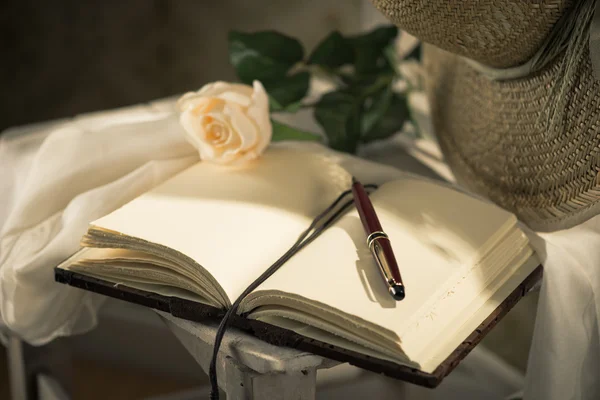Are you captivated by words, language rhythm, and self-expression? Do you long to create a poetic masterpiece that reaches readers on a deep level? If so, you’re in the right place! In this article, we’ll explore the art of poetry and delve into practical tips and techniques on how to get started. Whether you’re a seasoned poet or a novice, these insights will inspire you to unleash your creativity, express your soul, and capture readers with your words.
Check out Poems Please for a comprehensive poetry guide.
The Beauty of Poetry: A World of Possibilities
Poetry is a form of artistic expression that transcends boundaries and speaks to the depths of the human experience. It’s a language of the soul, a way to convey emotions, thoughts, and perspectives uniquely and powerfully. Poetry allows us to capture fleeting moments, paint vivid imagery, and evoke emotions that are often hard to express in ordinary prose.
Poetry comes in various forms, from sonnets and haikus to free verse and slam poetry. It can cover various subjects, from love and nature to social issues and political commentary. The beauty of poetry lies in its versatility, allowing poets to experiment with different styles, structures, and themes to create unique voices.
click here to see detailed information: https://poemsplease.com/
How to Start Poetry: Practical Tips and Techniques
Now that we’ve established the beauty of poetry, let’s dive into some practical tips and techniques on how to start poetry and create compelling verses that leave a lasting impact.
- Find Your Inspiration: Poetry is born from the depths of your soul, so it’s crucial to find what inspires you. Look for inspiration in everyday life, nature, music, art, or personal experiences. Keep a journal handy to jot down ideas, observations, and emotions that stir your soul. Draw from your unique perspective, and let your imagination run wild.
- Experiment with Language: Poetry is all about playing with words, so don’t be afraid to experiment with language. Use vivid imagery, rich metaphors, and sensory details to create a sensory experience for your readers. Experiment with different forms of figurative languages, such as similes, metaphors, personification, and alliteration, to add depth and beauty to your verses.
- Play with Rhythm and Sound: The musicality of poetry is its heartbeat, so pay attention to the rhythm and sound of your words. Experiment with different metres, such as iambic pentameter or trochaic tetrameter, to create a specific mood or tone. Play with rhyme, assonance, and consonance to add musicality and flow to your verses. Read your poems out loud to feel the rhythm and sound of your words and make necessary adjustments.
- Follow the Rules, but Break Them Too: Poetry has its traditional forms and structures, such as sonnets, haikus, and villanelles, which have specific rules and guidelines. While it’s essential to understand these forms, don’t be afraid to break the rules and create your unique style. Experiment with different structures, line breaks, and stanzas to create a visual impact and make your words dance on the page.
- Edit and Revise: Writing poetry is a process of refinement, so be prepared to edit and revise your work. Once you’ve written your first draft, take a step back, and look at it with a fresh perspective. Cut out unnecessary words, refine your language, and tighten your verses to create a polished piece. Pay attention to the flow, coherence, and clarity of your poems. Don’t be afraid to make changes and iterate until you’re satisfied with the final result.
- Embrace Vulnerability: Poetry is an intimate form of self-expression, so don’t be afraid to be vulnerable in your writing. Share your thoughts, emotions, and experiences authentically. Let your poems reflect your unique voice and perspective. Don’t shy away from exploring difficult or sensitive topics. Authenticity and vulnerability in your poetry can connect with readers on a deeper level and make your words resonate with them.
- Read and Study Poetry: To excel in the art of poetry, it’s crucial to immerse yourself in the work of other poets. Read poems from different eras, styles, and cultures to broaden your understanding of the craft. Study the techniques, forms, and language used by renowned poets. Pay attention to how they use imagery, rhythm, sound, and structure to create powerful poems. Reading and studying poetry can inspire and influence your own writing, helping you develop your unique voice.
- Embrace the Writing Process: Writing poetry is a journey, and the process is as important as the final product. Embrace the ups and downs, the moments of inspiration, and the challenges of writer’s block. Allow yourself to experiment, make mistakes, and learn from them. Don’t be too hard on yourself and be patient with your writing. Trust the creative process, and let your poems evolve and transform over time.
- Share Your Poetry: Poetry is meant to be shared, so don’t be afraid to put your work out into the world. Share your poems with trusted friends, family, or writing groups for feedback. Submit your work to literary magazines, participate in open mic nights, or create an online presence for your poetry. Sharing your poetry can help you receive valuable feedback, connect with other poets, and build an audience for your work.
Conclusion
Starting poetry may seem like a daunting task, but with the right mindset, dedication, and practice, anyone can become a poet. Remember to write from your heart, be authentic in your expression, and experiment with different styles and techniques. Embrace the writing process, be open to feedback, and share your work with others. Don’t be discouraged by self-doubt or fear of judgement, and continue to hone your craft. Keep reading, studying, and writing poetry to refine your skills and develop your own unique voice. Happy writing, and may your poetry shine bright!
Also Read Interesting Articles At: Tech InShorts.
